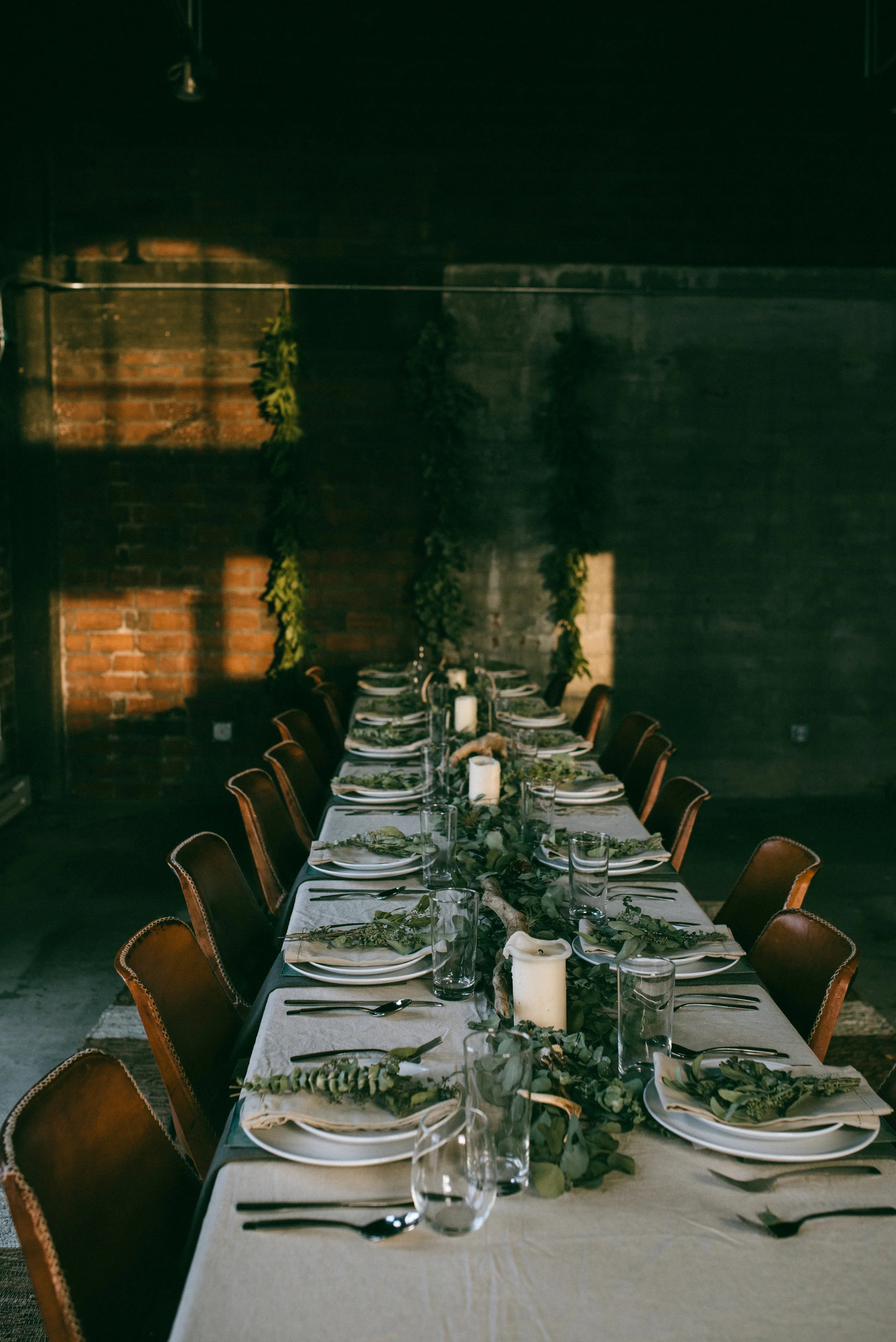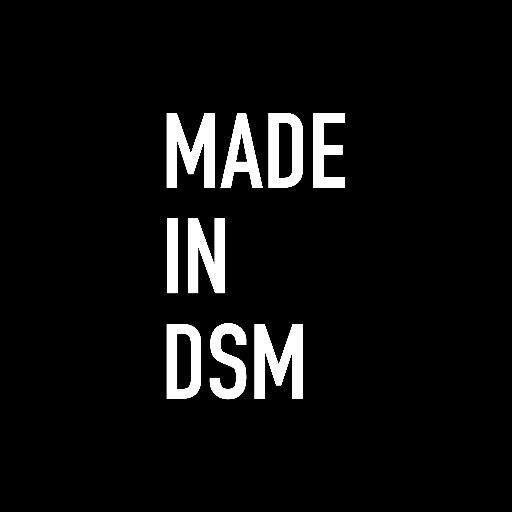A Conversation with Emily Boyd
/I have an extensive list of people I want to feature on the site and near the top of this year's list was my friend, Emily Boyd. Somehow between both of our schedules we found time to meet up at La Mie to talk about Emily's involvement with neighborhood revitalization here in Des Moines. Emily's one of the busiest people I know, but also one of the happiest. I think she's found that sweet spot where her deep gladness and the world's deep hunger meet up. You can check out her blog here. And if you happen to be downtown this summer, you'll probably see her leading a yoga class down by the river. Thanks for talking, Emily!
I'm vaguely aware of what you do based on your blog. But for those who don't know you, explain how you got to Des Moines and what it is that you do here.
After I enrolled at Drake as a communications major, I started interning with local non-profits and through those internships, became very passionate about communication and how it has the power to create change. I saw that when it came to activities like fundraising or advocacy, if you really refined your communications skills, there was power there to harness.
As I approached graduation, I felt that the path I was on was leading me into corporate America and I just didn't want that for my life. At the same time I was reading Donald Miller's book, A Million Miles in a Thousand Years, and his perspective really challenged me.
Okay, hold up. That book is amazing! It really influenced me, as well. What part impacted you the most?
His book talks about your life being a story and how we have the ability to craft our lives into more memorable stories. I knew I wanted to write a story with my life and that I didn't want that story to be set in corporate America. After that epiphany, I signed up for the same bike tour that Don did and rode across the country with a group of fellow bicyclists. At the end of the ride, we ended up raising something like $40,000.00 for clean water in Kenya!
After that did you get come to Des Moines?
I did! I came back and started working with AmeriCorps, which I describe as being like the "Peacecorps of America." While working for them, I brought volunteers together, went on home visits, and through those activities I began to see what people were experiencing right here in Des Moines. I had no idea about the amount of poverty here and it was a huge eye-opener.
As I visited with people and listened to their stories, I started to feel like, yes, it's cool that we can help repair their homes, but their situation is so much more layered and complex. I felt like I wasn't even helping and that I was just slapping this Band Aid on a really big issue. I was grateful we could help them, but I always wanted to do more. It became really troublesome in my heart.
Tell me about your current job with the Viva East Bank project.
Currently I work with Community Housing Initiative as a community development director. I work to help empower local residents and raise up leaders in under-resourced neighborhoods. I began meeting with local neighborhoods that were going through revitalization projects and I noticed that people from the outside wanted to focus on infrastructure - things like potholes and housing repair - but the people living in these neighborhoods cared about one another. They were more concerned with people feeling safe in their homes than with the condition of the homes.
As an initiative, we're really starting to look at place and things, like, how do you target a zip code? Someone once told me that your zip code has more impact on your well-being than your genetics. I thought that was interesting and I think of that often as we work with people throughout the community.
We want these to become what we like to call "neighborhoods of choice" and that means anyone at any income could choose to live here. We're taking a really comprehensive approach to neighborhood change; we aren't just looking at fixing the houses, we're looking at the people inside those houses and what their needs might be. In three years we've seen almost ten million invested and it's become a model for holistic change in the community. It's been exciting!
Listening to you talk, I can't help but wonder how you avoid gentrification? You hear stories all the time about neighborhoods being revitalized like this, but then the original population can't afford new property taxes etc. How does your initiate keep that from happening?
We have a really strong housing work group and they focus on putting affordable housing in the neighborhood. We also do a little bit of "market rate" housing and this helps to diversify the market, while still preserving the affordability. We're very cognizant of that because we never want to imply hey! leave this neighborhood so we can renovate this house.
The initiative is very grassroots, so I don't think we'll struggle with that as much as people might perceive we would.
You seem to really value community - on both a personal and professional level. Why do you think your value it?
I feel like most people crave connection more than anything else. We want to be around like-minded people or people who share the same vision that we do. I'm constantly looking to connect people of similar visions in order to mobilize them to create change. I think building community always leads to some sort of action.
I was doing a little research before this meeting and over on your blog's bio, you describe yourself as "an enthusiast." How does being enthusiastic influence your life and work?
I've learned that how we respond to people's ideas is really important. I think that being enthusiast is about hearing someone's idea and empowering them however you can to help them take that next step.
If someone comes to you with an idea and you fire-hose them and say well, we've already tried that, chances are they're not going to come to you with an idea again. Being enthusiastic is about being open to those new ideas. Some people don't have that positive input in their everyday lives, so it's important to walk confidently in that type of enthusiasm when you do have it.
Besides your full-time job, you also host popup yoga through Pop Up Yoga DSM. They've become quite popular! How did you organize those and how did you handle the growth?
The vision has always been to host yoga events all around Des Moines and to have the events be completely free. With the popularity that we've found, we've just had embraced the roller-coaster ride. People are so pumped about it! We just continue to put ourselves at there and be responsive to people's interest. Popups aren't always going to be "cool thing" so I think it's important to learn to ride the wave.
What do you hope to see happen in Des Moines in the next few years?
I really hope to see some of the focus shifted off of young professionals and onto the newer populations here in Iowa. We all have a lot of pride about Des Moines being the best city for YP's and we should be proud, it's awesome! But I wonder: are we the best city for refugees or for immigrants?
We're seeing a growth with these new populations, but how are we setting up ourselves to be welcoming to them as they come? I don't think I've heard much of that in conversation because the conversation has been so focused on young people. If we continue to stay focused on young people, let's equip them to be welcoming to these newcomers.
That being said, this is such a great time to be in Des Moines. We're a part of something right now and if you hold on tight, you can be part of the movement and change. We're on the ground floor of something and it's exciting.











